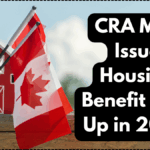In a significant policy update, the Canadian government has announced a major expansion to the Canada Student Loan Forgiveness 2026 initiative. This enhancement specifically benefits nurses, teachers, and other essential professionals who serve in under-resourced or remote communities. Aimed at strengthening the public service workforce, the new eligibility rules broaden access to student loan relief and introduce increased incentives for those on the front lines of healthcare and education.

What’s New in 2026: Key Changes at a Glance
Under the 2026 revision, Canada is increasing both the amount of loan forgiveness available and the range of professionals who can qualify. The initiative now provides up to $30,000 in loan forgiveness for nurses and $20,000 for teachers over a five-year service period. This is a sharp increase from the previous caps of $20,000 and $17,500 respectively. In addition, midwives, nurse practitioners, early childhood educators, and special education professionals are now explicitly included.
Full Eligibility Criteria for 2026 Loan Forgiveness
To qualify for loan relief under the 2026 changes, applicants must:
- Hold a Canada Student Loan in good standing
- Work full-time in an eligible position
- Serve in a designated rural, remote, or high-need community
- Be employed for at least one full year (for annual forgiveness credits)
Eligible Professions (2026 Update):
| Profession | Maximum Loan Forgiveness | Service Requirement |
|---|---|---|
| Registered Nurses | $30,000 | 5 years |
| Nurse Practitioners | $30,000 | 5 years |
| Licensed Practical Nurses | $25,000 | 5 years |
| Midwives | $25,000 | 5 years |
| K–12 Teachers | $20,000 | 5 years |
| Special Education Teachers | $20,000 | 5 years |
| Early Childhood Educators | $15,000 | 5 years |
These updates reflect Canada’s commitment to addressing labor shortages in critical sectors while offering tangible financial relief to those burdened with education debt.
Loan Relief for Nurses and Teachers: Why It Matters
This expansion isn’t just about economic relief; it’s a strategic move to stabilize key public sectors. Nurses and teachers are leaving the workforce at concerning rates, especially in rural and northern regions. By targeting student debt, Canada is investing in retention. New graduates from healthcare and education programs are more likely to commit to underserved areas when financial incentives are tied to long-term service.
Beyond the numbers, the 2026 policy shift shows that the government recognizes the long-term value of frontline professionals. It also helps address burnout and staffing crises by attracting qualified workers with tangible benefits like loan relief for nurses and teachers in Canada.
What to Expect Moving Forward
With the 2026 expansion now formalized, more detailed guidelines will roll out by January. Applications for the updated forgiveness program will open in March 2026 through the National Student Loans Service Centre (NSLSC). Provinces are also encouraged to complement the federal support with their own healthcare worker benefits and incentives for educators. Stakeholders are urging even more flexibility, such as part-time eligibility and broader definitions of “underserved communities.”
Conclusion
The upgraded Canada Student Loan Forgiveness 2026 program delivers timely support for professionals who form the backbone of Canada’s public services. With broader eligibility and higher forgiveness amounts, it not only eases the pressure of student debt but also strengthens essential services in the regions that need them most. If you’re a nurse, teacher, or related professional considering work in rural or underserved areas, 2026 could be the most financially rewarding year to make that move.
FAQs on Canada Student Loan Forgiveness 2026
Who qualifies for the Canada Student Loan Forgiveness 2026?
Eligible applicants include nurses, teachers, and other specified professionals working full-time in underserved or rural areas for a minimum of one year.
How much can I get forgiven on my education loan in 2026?
Depending on your profession, you may qualify for $15,000 to $30,000 in student loan forgiveness over five years.
When can I apply for the 2026 student loan relief program?
Applications open in March 2026 through the National Student Loans Service Centre (NSLSC).
Does this apply to provincial student loans too?
Currently, the expanded program applies to federal loans. However, provinces may offer complementary forgiveness programs.
Are part-time workers eligible for forgiveness?
As of 2026, only full-time professionals are eligible, though discussions are ongoing about extending this to part-time staff in future updates.
Click here to know more.
Akesh is a talented content writer known for creating captivating and impactful narratives. He understands what resonates with audiences and tailors his content to inform, inspire, and engage. From blog posts and articles to marketing copy, his work consistently combines creativity with clarity. His skillful writing strengthens our brand’s voice and ensures our message leaves a meaningful impression.



